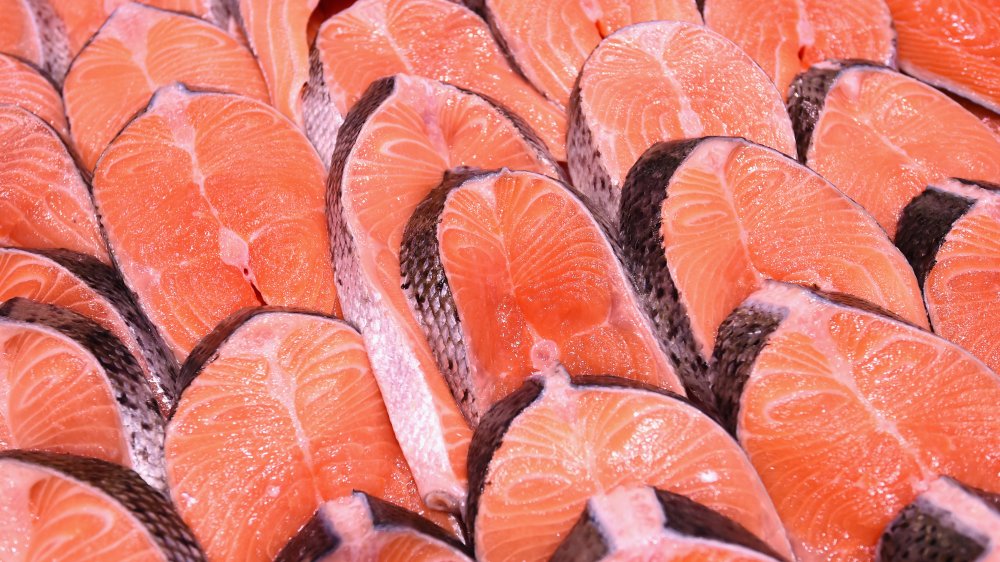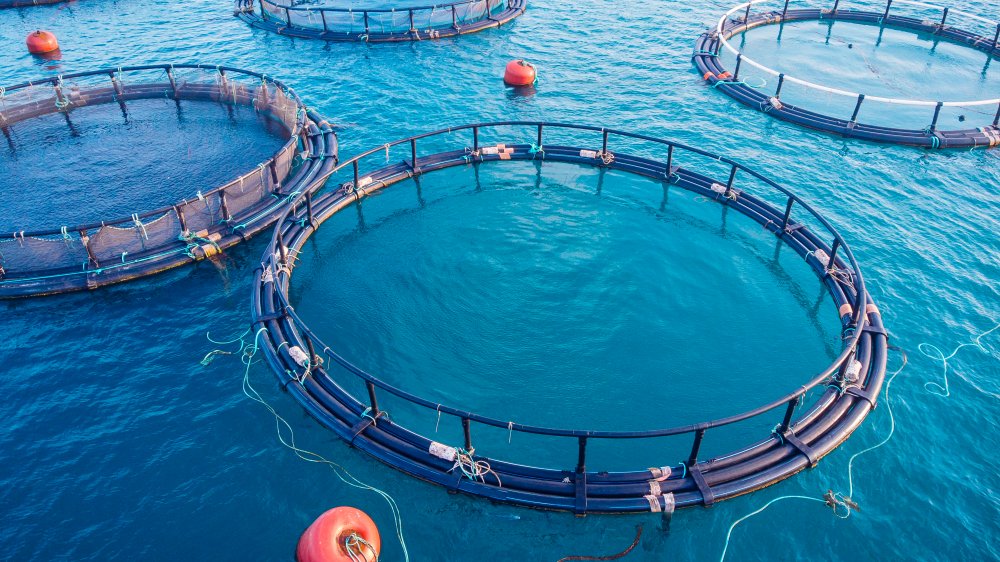The Real Reason You Should Stop Eating Farmed Salmon
If you're about to eat a perfectly cooked, thick, pink salmon filet (and aren't you lucky), you might be conjuring images of the fish's life before it landed on your dinner plate: battling rapids and dodging grizzly bears to reach spawning grounds. In reality, your dinner probably spent its entire adult life in an offshore pen, getting fed by humans and interacting with no bears or any other wildlife. Two-thirds of the salmon consumed in the U.S. comes from "farms" like this (via Seafood Health Facts). But which type of salmon should you be eating, farmed or wild-caught? The great dinner-plate debate between these two is complex but can be simplified into two main issues: Are salmon that grow up in cages more or less healthy for you than wild salmon? And which is the more environmentally responsible choice?
We can cut to the chase on the question of which type of salmon is better for you. Both turn out to be healthy options, as good sources of protein, vitamins, minerals, and especially omega-3 fatty acids (via Seafood Health Facts). Years ago, scientific studies suggested that farmed fish had higher levels of PCBs and other harmful chemicals than wild salmon. This is no longer true. Changes to the ingredients in farmed salmon's food has reduced their pollution levels (via Washington State Department of Health).
Farmed salmon pose a threat to wild fish
The debate gets more interesting on the issue of environmental impacts. Should you eat farm-raised salmon, to keep the declining wild population intact? It turns out that farmed salmon are a bigger risk to the survival of wild salmon than your dining choices. If you're going to eat salmon and you want to choose the most environmentally responsible option, wild-caught is the way to go.
When some 300,000 Atlantic salmon escaped their pen off Washington state's shoreline, the Lummi Nation tribe declared a disaster (via The New Yorker). Indigenous tribes in the Pacific Northwest, whose culture, religion and economy depend on salmon, see farmed salmon as a dire threat (via High Country News). One out of every 100 farmed salmon ends up escaping its pen (via Northwest Treaty Tribes). Each escaped salmon carries a risk: the possibility of infecting native, wild salmon with a potentially deadly virus (via CTV News).
Not only is the way of life practiced by certain native tribes in peril. The ecosystem that includes the oceans and rivers of the Pacific Northwest rely heavily on salmon. "Salmon are what's known as a keystone species ... over 100 different species depend on wild salmon," a conservation group's director told CTV News. As with any food, it's best to know where your salmon comes from. Whether wild or farmed, salmon is a healthy option. But the choice could help decide the salmon's ultimate fate, for better or worse.

